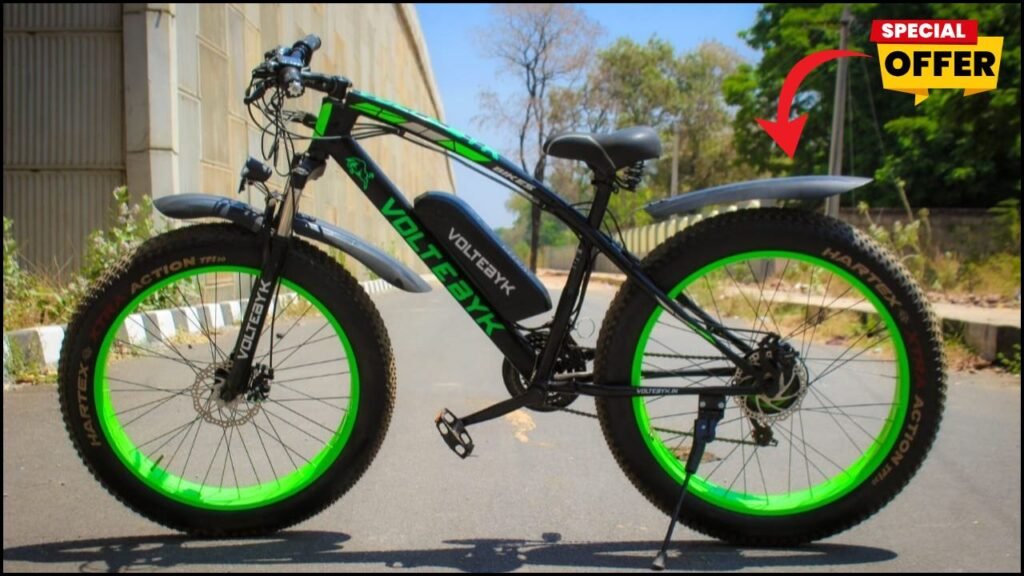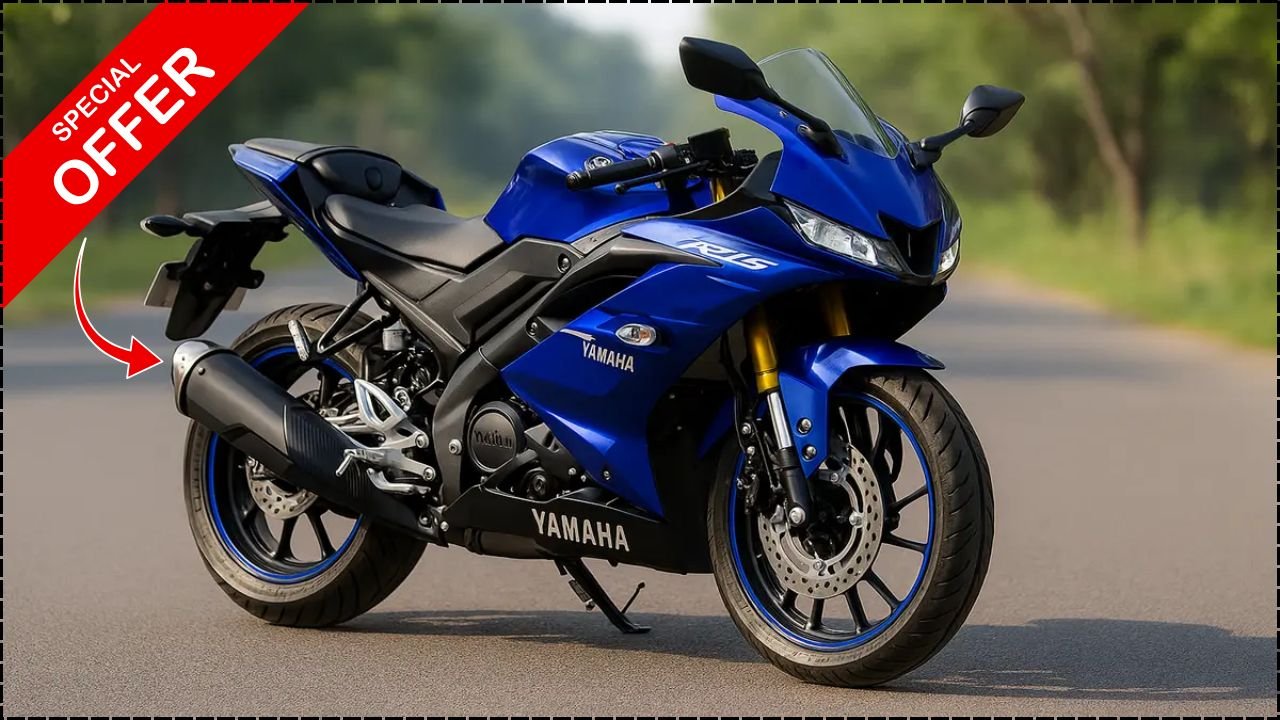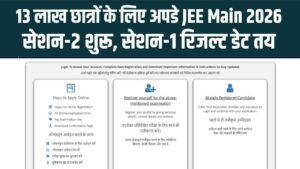
A viral claim offering the Runner Pro Electric Cycle with a 110-kilometre range and a top speed of 45 kilometres per hour for ₹5,000 has sparked widespread consumer interest and caution across India. The offer, which began circulating through social media channels and non-official websites in late October 2025, has prompted industry experts and government agencies to issue warnings about potential fraud.
Table of Contents
The Unusual Offer That Captured National Attention
The viral claim promises a high-performance e-cycle at an extremely low price. Posts and blog articles suggest buyers can own a Runner Pro Electric Cycle for ₹5,000—far below the typical price of comparable electric bicycles.
The advertisement also claims the cycle offers 110 km of riding range and 45 km/h top speed, specifications more aligned with premium electric scooters or motorcycles than entry-level e-bikes.
According to official listings from established retailers such as CycleSpares.in, a genuine Runner Pro Electric Cycle costs between ₹45,000 and ₹60,000 depending on battery configuration.
“Such an offer is economically unviable,” said Ankit Sinha, an independent e-mobility consultant based in New Delhi. “Even the battery required for this claimed range would cost three times the asking price.”
What a Real Runner Pro Electric Cycle Actually Offers
The legitimate Runner Pro model typically comes with:
- A 250W brushless DC hub motor,
- A range of 50–65 kilometres on a single charge,
- A top speed of 25–30 km/h,
- Pedal-assist features, and
- Lithium-ion or lead-acid battery options.
The vehicle targets daily commuters in urban centres, students, and last-mile delivery services.
These figures match India’s Central Motor Vehicles Rules (CMVR) for unregistered e-bikes, which cap top speeds at 25 km/h and motor output at 250 watts. Anything exceeding this falls under registered vehicle categories and requires licensing, insurance, and roadworthiness certification.
“The claimed specs of 45 km/h speed would place the model in a different regulatory bracket,” explained Dr. Meena Raj, a policy analyst at the Energy and Resources Institute (TERI). “Any legitimate manufacturer would need proper certification for this.”
Regulatory and Consumer Protection Landscape
The Government of India regulates e-mobility through a mix of vehicle classification, incentives, and safety standards. Under CMVR norms, an e-cycle exceeding 25 km/h requires registration with the Regional Transport Office (RTO), a valid insurance policy, and adherence to manufacturing standards.
The Bureau of Indian Standards (BIS) also issues certifications to ensure safety and quality in battery and motor components. Unregistered models with unverified performance figures are illegal to sell in India.
The Department of Consumer Affairs has previously issued advisories warning citizens against suspicious EV offers, urging them to buy only from verified dealers.
Scam Pattern Mirrors Previous Fake EV Offers
The viral Runner Pro Electric Cycle offer resembles earlier fake listings targeting consumers with deep discounts. Common scam tactics include:
- Setting up a professional-looking website with minimal contact details.
- Advertising unrealistically low prices.
- Requesting advance payments or deposits without providing official invoices.
- Disappearing once the payment is made.
“This is a classic high-volume, low-trace scam model,” said Rajat Nair, cybersecurity researcher at CERT-In (Indian Computer Emergency Response Team). “The scammers rely on mass reach, viral marketing, and the allure of a limited-time deal.”
In 2023 and 2024, similar fraudulent listings involving fake Ola Electric scooters and Ather Energy models led to hundreds of consumer complaints across multiple states. Law enforcement agencies made arrests in some cases, but many consumers were unable to recover their payments.
How Consumers Can Verify Authenticity Before Purchase
Experts recommend several steps to verify any EV offer:
- Check the official website of the manufacturer or dealer.
- Look for BIS and FAME II certification details on product pages.
- Verify the seller’s GST number and physical address.
- Refuse to make advance payments without a formal invoice.
- Contact customer service numbers from official sources, not from promotional links.
- Check whether the vehicle specifications align with CMVR norms.
“Before paying a rupee, ensure the dealer is listed on the company’s official site,” advised Priya Menon, spokesperson for the Consumer Guidance Society of India. “If something looks too good to be true, it usually is.”
Broader EV Market Dynamics in India
India’s electric vehicle market has expanded rapidly in the last five years. According to the Society of Manufacturers of Electric Vehicles (SMEV), annual EV two-wheeler sales crossed one million units in FY 2024–25, a 34% year-on-year increase.
This growth has been fueled by government subsidies under the Faster Adoption and Manufacturing of Hybrid and Electric Vehicles (FAME II) scheme, lower running costs, and environmental concerns.
However, with rising consumer demand, online scams have increased in parallel. Fraudsters exploit the perception that EVs are becoming more affordable, often copying branding and logos of legitimate manufacturers.
“Affordable EVs are a critical part of India’s climate goals,” noted Dr. Vivek Arora, researcher at IIT Delhi. “But affordability must come through innovation and subsidies—not scams.”
Government and Industry Response
The Ministry of Consumer Affairs, CERT-In, and the Automotive Research Association of India (ARAI) have increased monitoring of fraudulent e-commerce platforms. Officials say they are working on a centralised EV authentication platform, allowing consumers to verify a product’s legitimacy before purchase.
“We aim to provide a quick verification tool where users can input a model name and instantly check its registration and certification status,” said an official from the Ministry of Heavy Industries on condition of anonymity.
Meanwhile, several EV manufacturers have begun issuing public advisories and legal notices to clamp down on fake listings that misuse their branding.
Impact on Consumer Trust and Industry Credibility
Analysts warn that repeated scam incidents can erode consumer confidence in the EV sector. For new buyers, particularly in Tier-2 and Tier-3 cities, the fear of fraud may discourage legitimate purchases.
“Trust is a cornerstone of the EV adoption curve,” said Dr. Arora of IIT Delhi. “Even a few high-profile scams can undo years of progress.”
This concern is particularly relevant as India targets 30% EV adoption by 2030 as part of its broader climate commitments.
Why Such Offers Seem Plausible
Many consumers find the ₹5,000 Runner Pro Electric Cycle offer believable because of recent price reductions in entry-level EVs, expanded subsidies, and a flood of new brands entering the market.
Fraudsters use these trends to make their claims sound credible, often citing government schemes that do not actually apply to the products they advertise.
“Subsidies can reduce EV prices, but not to the point where they cost less than a smartphone,” explained Sinha, the e-mobility consultant. “That’s where basic price awareness becomes the best defence.”
Toyota Smart Electric Cycle 2025 with 400km Range and Smart Assist: Bumper Launch Offer at ₹1,500
Conclusion
The Runner Pro Electric Cycle offer of 110 km range and 45 km/h speed for ₹5,000 has captured public imagination but is almost certainly fraudulent. Experts and regulatory authorities are urging consumers to exercise caution, verify seller credentials, and report suspicious listings.
Such incidents underscore the need for stronger oversight of the EV retail ecosystem, especially online. As India accelerates its transition to electric mobility, consumer trust remains both a critical asset and a fragile one.

















